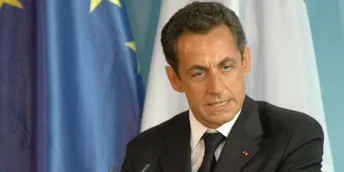Nicolas Sarkozy, born on January 28, 1955, in Paris, France, is a prominent French politician who served as the President of France from 2007 to 2012. His career has been marked by a dynamic approach to politics, characterized by bold reforms and a charismatic, often polarizing, public persona.
Sarkozy’s early political life began in the 1970s when he joined the Gaullist party, later known as the Rally for the Republic (RPR). His rise through the political ranks was swift; he became the mayor of Neuilly-sur-Seine, a wealthy suburb of Paris, at the age of 28. His ability to navigate the complex landscape of French politics was evident in his subsequent appointments as Minister of the Interior and Minister of Finance under President Jacques Chirac.
In 2007, Sarkozy won the presidential election, promising to invigorate the French economy and implement a series of liberal economic reforms. His presidency was marked by efforts to modernize France’s labor market, including raising the retirement age and cutting taxes. Sarkozy also sought to make France more competitive on the global stage by reducing public deficits and promoting entrepreneurship.
Internationally, Sarkozy played a significant role in the European Union, particularly during the financial crisis of 2008-2009. He was a key advocate for coordinated European responses to the crisis and was instrumental in establishing mechanisms to stabilize the eurozone. Sarkozy’s foreign policy was characterized by a proactive stance, exemplified by his leadership in NATO’s intervention in Libya in 2011 and his efforts to mediate conflicts in Georgia and Syria.
Despite his achievements, Sarkozy’s presidency was also marred by controversies and declining popularity. Critics accused him of being too aggressive and authoritarian, leading to strained relations with labor unions and widespread protests against his reforms. Additionally, his personal style and associations with wealthy business figures earned him the nickname “President Bling-Bling,” which damaged his public image.
After losing the 2012 presidential election to François Hollande, Sarkozy retired from active politics, only to return briefly in 2014 as the leader of the newly rebranded party, The Republicans. However, his attempted political comeback was overshadowed by numerous legal issues, including investigations into alleged campaign finance violations and corruption. In 2021, he was convicted of corruption and influence peddling, receiving a prison sentence, which he appealed.
Sarkozy remains a significant figure in French politics, known for his energetic and reformist approach, as well as the controversies that have followed his career. His legacy is a blend of economic modernization efforts and a divisive leadership style that continues to influence the political landscape of France.
newshub



Recent Comments